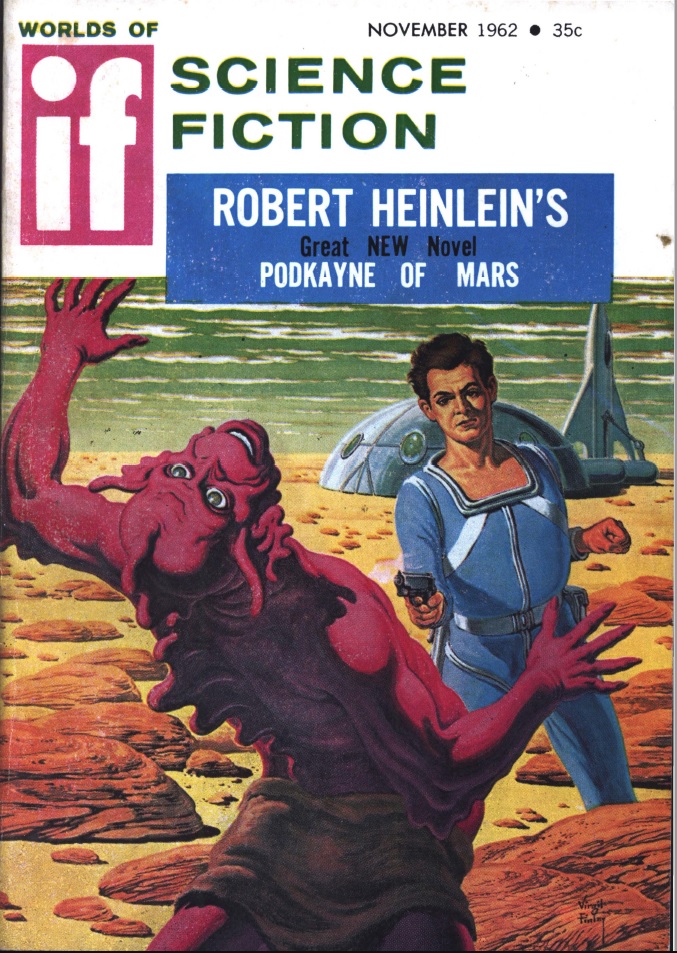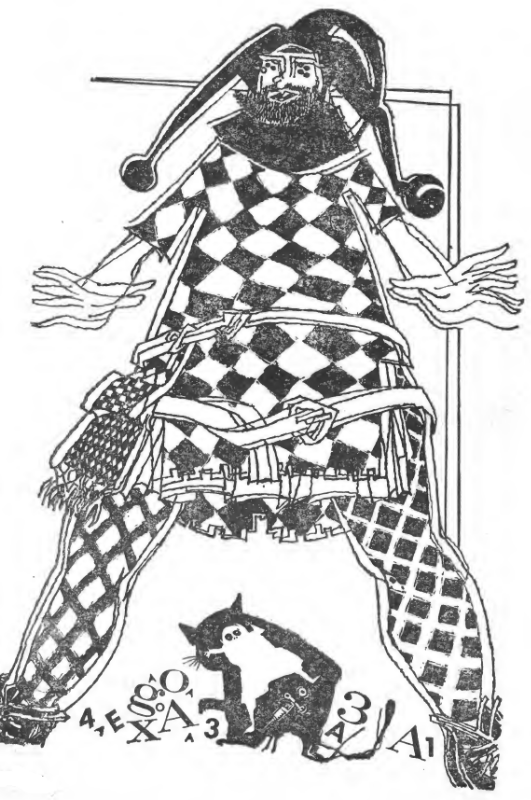[if you’re new to the Journey, read this to see what we’re all about!]

by Gideon Marcus
Ah, Winter. That sleepy time of the year when the air gets chillier (such as it ever gets chilly in Southern California), work slows down a bit, and shopping for the holidays picks up. The first night of Hannukah is the 21st, and then, of course, there's the big mid-Hannukah holiday (named after Chris, the patron saint of presents).
And it's when I renew my subscriptions for science fiction magazines since they generally offer Christmas discounts!

December marks the new year, at least as far as periodicals go. January-dated issues show up the month before, so I've already gotten a sneak preview into the next year. First up is is the January 1963 IF, and if this be a harbinger, then next year will probably be a decent one:

The Five Hells of Orion, by Frederik Pohl

I have to wonder if Pohl gets paid the same rate as everyone else for stories he writes, given that he is the editor. Of course, he should. Pohl has been a writer for decades, and he produces good stuff. Orion follows the tale of an young astrogator shanghaied across a thousand light years by aliens bent on forging an alliance with humanity. The first half is very good. The spaceman must navigate a set of intelligence tests and we gradually come to understand the intentions of the extraterrestrials. The payoff is rushed, however; perhaps this would have made a better novel. Three stars.
The Shipshape Miracle, by Clifford D. Simak

An atypical piece by Simak in which an incorrigible criminal crosses paths with the brother to The Ship Who Sang, to his ultimate dismay. Well-written, like everything Simak does, but unexceptional. Three stars for the story, but five stars for the excellent art!
This Way to the Egress, by Andrew Fetler
Fetler returns to IF with his second vignette, a subtle piece about the last hours of a social deviant. I suspect Fetler has a day job given the paucity of work he's published in our field. Three stars.
Essay in Coherence, by Theodore Sturgeon
This piece on LASERs (single-wavelength light beams of incredible intensity) shows that Sturgeon may soon give Asimov a run for his money with science articles. It's witty and informative, and probably will be the genesis of countless short stories involving this brand-new technology. Five stars.
Podkayne of Mars (Part 2 of 3), by Robert A. Heinlein

Part II of Heinlein's new juvenile(?) about Miss Poddy Fries and her space jaunt from Mars is a bit more readable than the last one, but it's still overwritten and gets bogged in detail. This is the spiritual successor to The Menace from Earth I'd hoped to share with my daughter, but I don't think it's quite good enough. Three stars for this installment.
Road Stop, by David Mason
A ghost story involving a haunted car…in a future when all cars are haunted by design. The tale isn't plausible, in and of itself, but the world it paints feels like a possible tomorrow. Three stars.
Fortress Ship, by Fred Saberhagen
Now here's an interesting one, by a newish author who's already turned out some good stuff. Fortress introduces the concept of the "Beserker," giant automated robot ships created as doomsday weapons. They roam the galaxy, relics of a forgotten war, reducing populated planets into ashes. It takes extraordinary courage and, more importantly, wit to defeat them. But it is possible… Four stars.
Captain of the Kali , by Gary Wright

The "IFirststory" competition netted a piece from freshly minted author Gary Wright. A futuristic C.S. Forester is recruited to serve as guest admiral on an alien fleet of sail-driven warships. A good first effort, though greater length and a few more sf trappings would have been nice. Three stars.
When Whirlybirds Call, by Frank Banta
Last up is a satirical piece about a laconic big-game hunter and the coocoo-downdraft-peoplehawk-whirlybirds he is contracted to exterminate. Cute while it lasts. Three stars.

It's rare that I go from beginning to end of a mag and find no lousy stories. This month's IF is solid (if not exceptional) entertainment, and as the cheapest of the digests (at 35 cents), it is definitely a bargain.


























